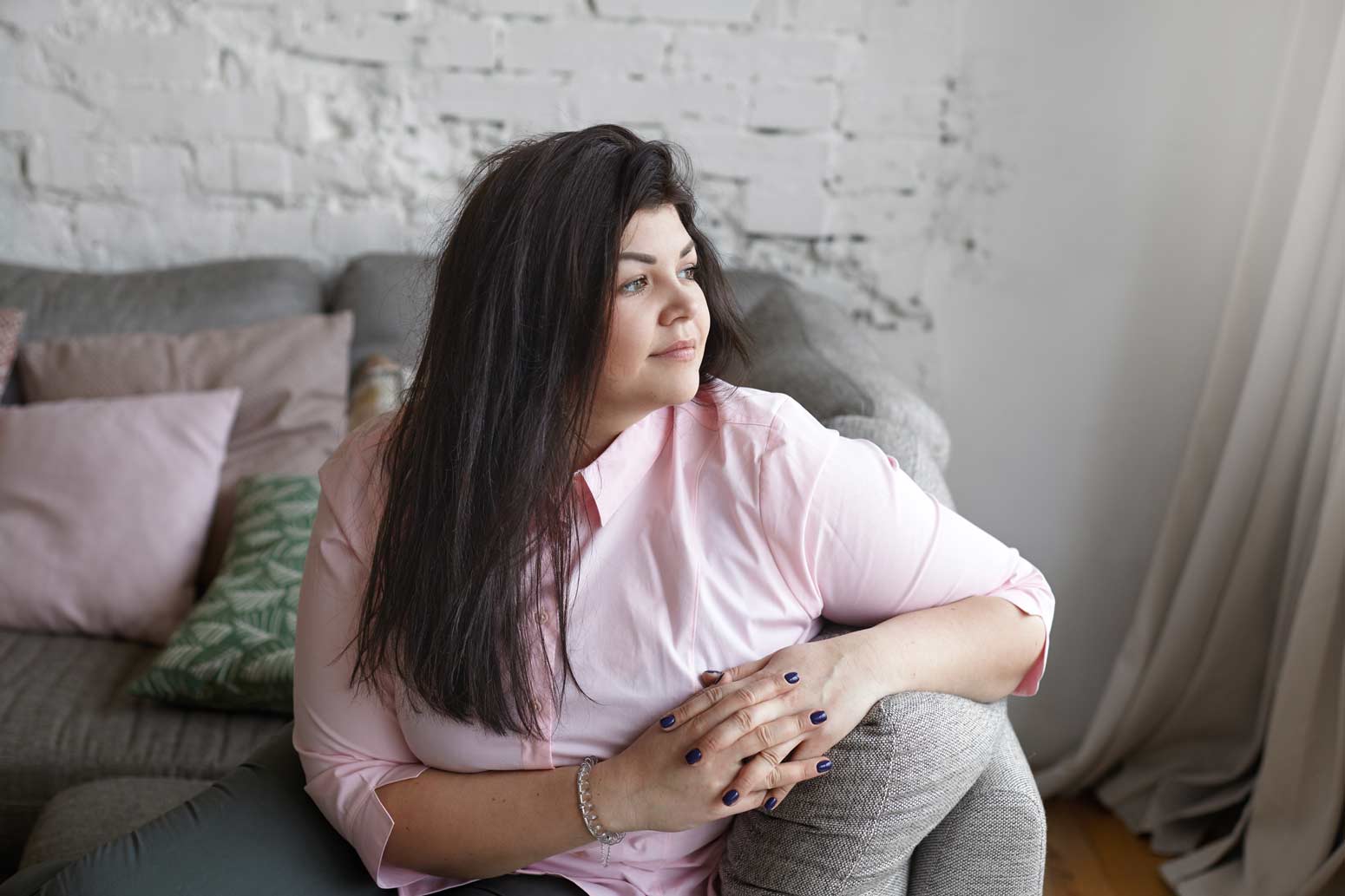I think of my sister often. Not because she’s passed away or we are estranged. I think of her because she showed me the face of courage. She taught me what it meant to be brave.
When his hand slapped and beat her—she focused on her baby’s future. When he kicked and stomped her—she kept her eyes on the promise of a better day. When words cut deeper than her scars—she maintained empathy. She chose love.
She endured the abuse of a mentally ill, drug-addicted husband—trapped by the fear of losing her daughter and her family.
Battered and bruised, she survived.
There’s More to It Than Meets the Eye
I was five when my sister married, she was 17. He was her hero. The focus of her naïve passion since the age of 15. The one she would share life with, experience love, and grow old with and then, he wasn’t.
My niece was two and a half years old when the abuse started. At first, it was possessiveness—flattering really, he wanted her all to himself. Then a hurtful word, a threat, a slap, soon escalating into indescribable violence.
Our parents often talked of rescuing, intervening, doing something but deep down they knew she would return. Her husband’s hold on her so deep—he had threatened to kill us if she left and she knew he was capable of doing it.
Researchers acknowledge that long-term repeated abuse can lead to post-traumatic stress disorder, depression, anxiety, and for many women that experience violence they cope with their trauma by using drugs, alcohol, smoking, or over-eating. (For more information about the impact of domestic violence, visit this website.)
Many women stay with their abuser, not because they don’t have support, but because they can’t see beyond their fear, the effects of isolation, the lack of self-esteem, and the decimation of their personal value.
What It’s Like to Love Someone Who’s in an Abusive Relationship
But what the research doesn’t discuss, what the articles don’t share, and the support groups don’t address are those standing on the outside of the abuse looking in. We watch the person we love change, disappear in front of us. A young woman with dreams, goals for her future—gone, replaced by a shell of a person clinging to each second of every day. Working to survive, shielding her baby, protecting her family.
The research can’t prepare those watching from the distance for the unreturned phone calls, for the silence, for the void. And even when you know, the absence is a survival technique, questions come to mind—can I do more, should I do more, why didn’t I do more?
Many women stay with their abuser because they can’t see beyond their fear, the effects of isolation, the lack of self-esteem, and the decimation of their value.
As a young woman, I understood in my head the impact domestic violence has on a person. I had reviewed the research, talked with the experts, and read the books. But in my heart, deep in my soul, I yearned for my sister. I ached for the holidays, the birthdays, her presence at my wedding. I longed to play with my niece, to be her aunt, share life, impart wisdom. So many absent moments.
But mostly, I regret I couldn’t be there. I recognize that I would not be able to stand between my sister and her husband’s violence. I didn’t have the tools to fix his illness or her brokenness. But if only I could have held her hand, touched her tears, held her bruised body. If only I could have provided comfort during the darkest time of her life.

I Learned So Much From My Sister
My sister taught me so much through the distance. Through the silence and the void, she taught me to be courageous, to respect myself, and to demand respect from others.
I was on the outside watching this grand story unfold. I would catch a glimpse of her at the store, in a park, walking down the street, and I watched how she navigated the world while living in a prison of fear. I saw her work to stay present, soft, a model for her young daughter even though she knew they would return home to a monster.
She helped me to become strong.
It had been decades of missed celebrations, years of watching from a distance when we received the call. My sister on the other end of the phone, her husband died suddenly. His addiction and mental illness taking its final toll. Through a devastating set of circumstances, she was free.
Our family longed to pick up the pieces, to make the past disappear. We are “fixers” and we had waited for what seemed to be an eternity to reach in and redeem the brokenness. But, the effects of a life of abuse are deeply ingrained in the brain—it takes time to reconnect, overcome the guilt, and wrestle with the shame. And as she worked her way back to us, we watched from the sideline, supporting when possible, comforting, loving her.
Standing on the sideline, sitting still when you want to run and save, praying and then praying some more—it just doesn’t feel like it’s enough when your loved one is being abused. There has to be more. More you can do.
But at times, all you can do is hold the image of your loved one as a precious gift. Gently placed in the palm of your hands, treasuring the moments, the memories, and looking forward to a time when you can be family.
I will never fully know the terror of her life. But I know today that through it all my sister stands tall. She is wrapped in dignity. She is a warrior, and I am bolder, more confident, because of her example. She conquered the pain, overcame the fear, and rose above his grip on her life.
So, what do you do if you are standing on the sideline of domestic abuse?
You’ve watched your sister, mother, girlfriend vanish. You’ve tried to comfort, to encourage, to shelter them from the attacks, the abuse, the pain. But right now, you are waiting, paused, fearful that the next call will make your nightmare come true. While you are waiting, remember these 4 P’s:
Pray
On your knees, face to the ground, pray. Intercede on behalf of the person. Pray for their safety, the spouse, children, ask for wisdom. Invite God into the situation and then pray for yourself. You need His strength and courage for this journey. It may be a long, hard trip.
Prepare
Find local agencies that help abused women—shelters, police, safe house locations, and educate yourself about their services, operating hours, and contact numbers. Research national and local websites that can provide accurate information about domestic violence, see the list below for links to national sites.
Plan
Consider developing a practical escape plan with your loved one. A packed bag hidden in a safe location. A place of refuge to go.
Persevere
I encourage you to come to grips with the fact that you can’t fix this. Your place, as hard as it may be, is on the sideline watching. Until the call comes, until they reach out—you are sequestered to the bench, waiting.
But when they reach out, then you have a chance to encourage, listen intently, and love unconditionally. Please resist the urge to blame or pour more shame and guilt on them. I understand you are frustrated and angry that you can’t change the circumstances. But they don’t need your sermons or why-nots. They need you.
Perhaps you are reading this and are in the midst of this desperate journey. Maybe he’s only threatened you, or perhaps it’s the first punch and you are thinking it won’t get any worse. Perhaps you are looking for a way out but fear is gripping your heart and his words keep repeating in your mind—there is no way out. Please know that help is available, reach out to someone, tell someone, you deserve more than the abuse you are experiencing. Your children deserve more. Please find the strength, when it’s safe, to leave. There is life on the other side of the abuse.
—
Domestic Violence Resources:
The United States Department of Justice Domestic Violence
National Domestic Violence Hotline
Domestic Violence Resource Center
National Resource center on Domestic Violence
Family Violence Prevention and Services Resource Centers
—
For more on strong women who’ve overcome, start here:
What This Lawyer Thinks Every Woman Should Know
Surviving Domestic Abuse—When There Were No “Red Flags”
This Is What I Learned About Life After My Rape and Pregnancy
3 Reasons You Should Share Your Story
Don’t miss these popular articles:
What Does It Mean to Be a Virtuous Woman?
How Breaking Up Made Me a Stronger Woman
From a Therapist: This Is Why Your Self-Talk Matters
#gritandgracelife
You’ll love this podcast episode from This Grit and Grace Life: Miss Independent: Can You Be Healthy, Strong and Dependent? – 047!













